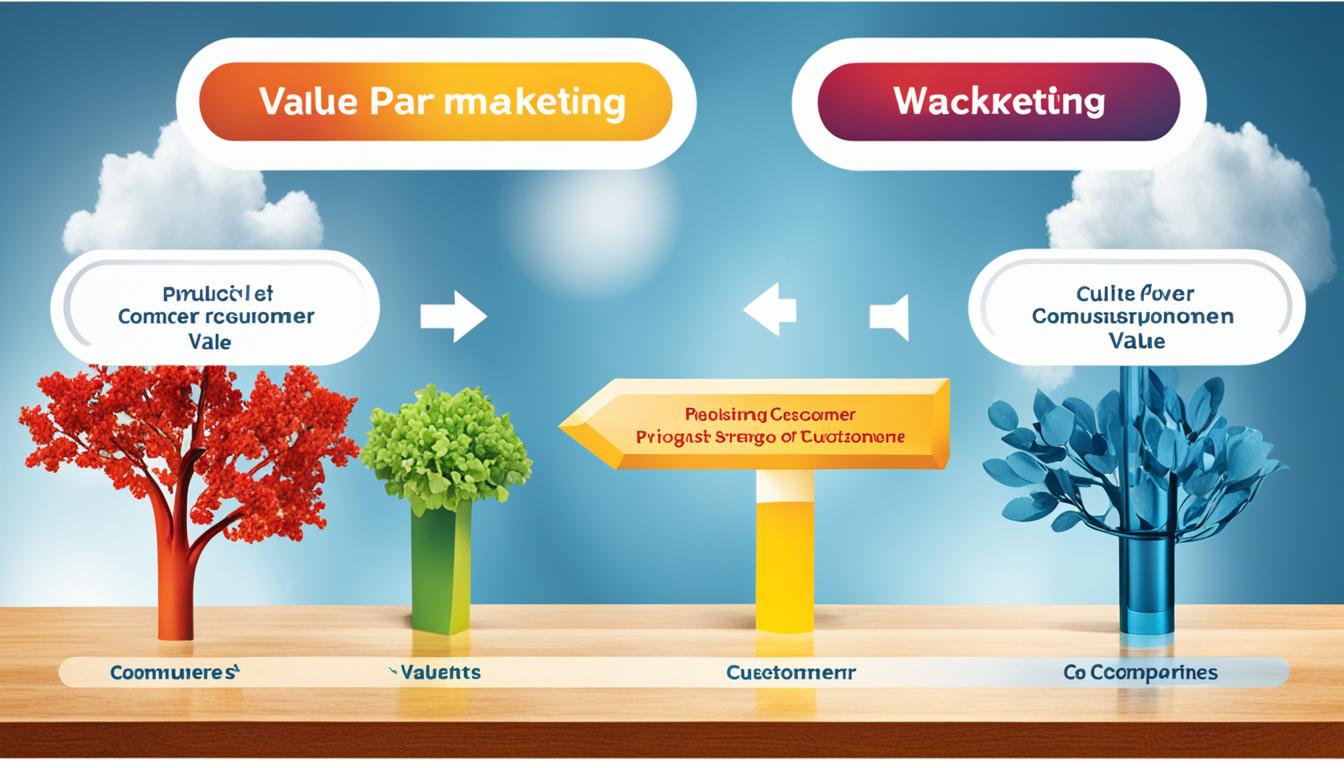Technical marketing is a specialized discipline within the realm of digital marketing that focuses on the technical aspects and specifications of a product or service. It goes beyond traditional marketing strategies and tactics to communicate complex information in a way that is accessible to the target audience.
In today’s fast-paced technological landscape, technical marketing plays a crucial role in fostering understanding, driving adoption, and positioning products or services at the forefront of the market. It bridges the gap between technology creators and end-users, resulting in increased sales, credibility, and customer loyalty.
Key Takeaways:
- Technical marketing focuses on the technical aspects and specifications of a product or service.
- It communicates complex information in a way that is accessible to the target audience.
- Technical marketing is crucial in today’s fast-paced technological landscape for fostering understanding, driving adoption, and positioning products or services at the forefront of the market.
- It plays a pivotal role in bridging the gap between technology creators and end-users, resulting in increased sales, credibility, and customer loyalty.
- Technical marketing requires a deep understanding of the technical aspects behind complex products or services.
When to Use Technical Marketing
Technical marketing plays a critical role when promoting complex products or services that require a deep understanding of their technical aspects. This specialized approach is necessary when the target audience is knowledgeable in the subject matter and requires in-depth information to make informed decisions.
Industries such as software, manufacturing, healthcare, aerospace, and electronics benefit greatly from employing technical marketing strategies. By leveraging their technical expertise, technical marketers effectively communicate with customers, generate high-quality leads, and achieve their business goals.
Here is a breakdown of when technical marketing is most effective:
- Complex Products: Technical marketing shines when selling intricate and sophisticated products or services that require a deeper level of understanding.
- Knowledgeable Audience: When the target audience possesses technical expertise or specific industry knowledge, technical marketing ensures the delivery of comprehensive information that resonates with their needs.
- Effective Communication: Technical marketing is pivotal in conveying complex product details and benefits to customers, helping them make informed purchasing decisions.
Technical marketing harnesses the power of specialized knowledge and ensures that companies effectively engage with their audience, build trust, and drive success in industries where complex products and technical expertise are paramount.
| Benefits of Technical Marketing | Challenges of Technical Marketing |
|---|---|
| Enhanced understanding of technical products or services | Simplifying complex concepts while maintaining accuracy |
| Increased credibility and trust | Staying updated with rapidly evolving technology |
| Better alignment between sales and engineering teams | Measuring the impact of technical marketing efforts |
| Highlighting nuanced technical advantages over competitors | Standing out in a crowded content landscape |
User Manuals
Technical marketing plays a crucial role in creating user manuals in technical fields such as engineering and electronics. User manuals provide detailed explanations of how to use a product or service, ensuring that users have a seamless experience. These manuals not only guide users through the functionalities and features but also highlight the benefits and value they can derive from the product or service.
To create effective user manuals, technical marketers need to possess a combination of technical writing experience, critical thinking skills, and deep product insights. They must be able to understand complex technical concepts and translate them into clear and concise instructions that users can easily follow.
In technical fields like engineering and electronics, user manuals often involve intricate procedures, diagrams, and troubleshooting steps. The technical marketer’s role is to simplify these complexities and present the information in a user-friendly and accessible manner.
By leveraging their expertise in the industry and their understanding of the target audience, technical marketers can develop user manuals that not only provide valuable guidance but also enhance the overall user experience. User manuals serve as an essential tool for customers to maximize the benefits of the product or service, leading to increased satisfaction and loyalty.
Software Programs and Applications
Technical marketing is essential when it comes to creating documentation for software programs and applications. This includes producing comprehensive software documentation for developers, as well as customer-facing documentation tailored to product-savvy consumers. In order to effectively communicate the value of software to different audiences, technical marketers must possess a deep understanding of the software itself and its functionalities.
Developer Documentation
Developers play a crucial role in creating and maintaining software programs and applications. Technical marketers must provide them with detailed documentation that not only explains how the software works but also helps them leverage its full potential. This documentation typically includes:
- API documentation
- Code samples and tutorials
- Integration guides
- Best practices
By providing developers with the necessary resources, technical marketers can empower them to build innovative solutions and expand the capabilities of the software.
Customer-Facing Documentation
In addition to developer documentation, technical marketers also create customer-facing documentation to support end-users in understanding and utilizing software programs and applications. This documentation helps customers make the most out of the software’s features and functionality. Customer-facing documentation may include:
- User guides
- Tutorials and walkthroughs
- Troubleshooting guides
- Frequently asked questions (FAQs)
By providing clear and accessible customer-facing documentation, technical marketers enable customers to have a seamless experience with the software, ultimately enhancing customer satisfaction and loyalty.
| Developer Documentation | Customer-Facing Documentation |
|---|---|
| API documentation | User guides |
| Code samples and tutorials | Tutorials and walkthroughs |
| Integration guides | Troubleshooting guides |
| Best practices | Frequently asked questions (FAQs) |
Assembly Instructions
Technical marketing plays a unique role in providing assembly instructions for products that need to be constructed or assembled, such as manufacturing parts, electronics, or furniture. Simplifying complex processes in assembly instructions significantly improves the user experience and ensures that users can easily build or assemble the product. Technical marketers need to have a thorough understanding of the assembly process to create clear and concise assembly instructions.
When it comes to manufacturing parts, electronics, or furniture, proper assembly is crucial for ensuring product functionality and longevity. Complex assembly processes can often be overwhelming for users, leading to frustration and errors. This is where technical marketers step in to simplify these processes and enhance the overall user experience.
By breaking down each step of the assembly process and using visual aids, technical marketers can guide users through the entire construction or assembly journey. Clear instructions, diagrams, and instructional videos help users understand complex concepts and ensure accurate assembly.
For example, let’s consider the assembly of a furniture piece. Technical marketers would provide detailed instructions on how to assemble each component, including information on required tools and hardware. They would also include diagrams or 3D renderings to visually demonstrate the assembly process.
Here is an example of a simple assembly instruction for a furniture piece:
| Step | Instructions |
|---|---|
| 1 | Attach the legs to the base using screws provided. Use a screwdriver for a secure fit. |
| 2 | Connect the backrest to the base using the provided brackets. Align the holes and secure with screws. |
| 3 | Attach the armrests to the sides of the backrest. Use screws and a screwdriver for a tight fit. |
| 4 | Place the seat cushion onto the assembled frame. Ensure it is centered and aligned. |
| 5 | Tighten any loose screws and perform a final inspection to ensure all parts are securely assembled. |
With clear assembly instructions and visuals, users can confidently and efficiently assemble products themselves, without the need for professional assistance. This not only saves time and money but also enhances customer satisfaction, as users can experience the sense of accomplishment that comes with successfully assembling a product.
Technical marketers play a crucial role in ensuring that assembly instructions are user-friendly and accessible. By simplifying complex processes, they enhance the overall user experience and contribute to customer satisfaction and loyalty.

Help Articles
Technical marketing involves creating help center articles, product walk-through videos, and other forms of how-to content. This requires technical writing skills, critical thinking, and deep product insights. Help articles aim to provide in-depth instruction and support to users, helping them navigate complex processes or overcome challenges they may encounter while using the product.
Technical marketers play a crucial role in developing comprehensive help center articles that address common user queries and provide step-by-step guidance. These articles are designed to enhance the user experience, facilitate self-help, and reduce reliance on customer support. By offering clear instructions, troubleshooting tips, and relevant examples, technical marketers empower users to achieve optimal product usage and satisfaction.
Product walk-through videos are another effective medium for delivering help and guidance. These videos visually demonstrate product features, functionalities, and usage scenarios in a concise and engaging manner. Technical marketers leverage their technical writing skills to script compelling video narratives, ensuring viewers can easily follow along and understand complex concepts.
When creating help articles and product walk-through videos, technical marketers rely on critical thinking to anticipate user needs and potential pain points. By putting themselves in the shoes of the users, technical marketers can provide valuable insights and solutions that address real-world challenges, fostering customer loyalty and satisfaction.
Technical writing is a core skill for technical marketers, as it involves crafting clear, concise, and user-friendly content. Technical marketers need to translate complex technical information into simple, digestible language that is accessible to a non-technical audience. Through effective technical writing, technical marketers can bridge the gap between product features and user understanding, ensuring that users can make the most of the product’s capabilities.
Technical Marketing Best Practices
To excel as a technical marketer, it is essential to implement industry best practices that drive audience understanding, leverage industry knowledge, embrace storytelling, and demonstrate business sense. By following these guidelines, technical marketers can effectively communicate with their target audience, build brand authority, and drive successful marketing campaigns.
Understand Your Target Audience
One of the key best practices in technical marketing is gaining a deep understanding of your target audience. Conduct in-depth research to identify their needs, pain points, and preferences. By comprehending your audience’s specific challenges and goals, you can tailor your messaging and content to resonate with and engage them effectively.
Sharpen Your Industry Knowledge
Stay ahead of the curve by continuously enhancing your industry knowledge. Keep up with the latest trends, technological advancements, and consumer insights. This level of expertise allows you to position yourself as a thought leader and provide valuable, up-to-date information to your audience, establishing your credibility.
Get Product Training
To effectively market technical products or services, it is crucial to have comprehensive product knowledge. Collaborate closely with your product team and participate in product training sessions to gain a deep understanding of your offerings. By having a firm grasp of your product’s features, benefits, and technical aspects, you can communicate its value proposition more effectively to your target audience.
Embrace Storytelling

Storytelling is a powerful technique that helps you connect with your audience on an emotional level and make technical information more relatable. Craft compelling narratives that highlight the challenges your audience faces and how your product or service solves those challenges. Utilize case studies, customer success stories, and real-life examples to engage and captivate your target audience.
Exercise Business Sense
Successful technical marketers understand the importance of aligning their efforts with business objectives. Develop a clear understanding of your company’s goals, metrics, and key performance indicators. This enables you to create marketing strategies that drive tangible results, whether it be generating leads, increasing conversions, or boosting revenue. By measuring and analyzing the impact of your technical marketing efforts, you can continuously optimize your strategies for maximum business impact.
Incorporating these technical marketing best practices will set you on the path to success. By understanding your audience, staying knowledgeable about your industry, obtaining product training, using storytelling techniques, and aligning your efforts with overall business goals, you can effectively engage your target audience and drive meaningful results for your organization.
7 Tips to Kickstart Your Career in Technical Marketing
If you’re looking to embark on a successful career in technical marketing, these seven tips will give you a head start. Whether you aspire to be a technical marketing manager, a technical content marketer, or a technical marketing writer, these career tips will set you on the right path.
- Choose a specific role: Determine the specific role within technical marketing that aligns with your interests and skills. Whether it’s managing marketing campaigns, creating compelling content, or writing technical documentation, specializing in a specific area will help you gain expertise and excel in your career.
- Hone your public speaking skills: Effective communication is key in technical marketing. Develop strong public speaking skills to confidently present and articulate complex technical concepts to clients and stakeholders. Enhancing your presentation skills will help you engage and persuade your audience.
- Improve your business sense: To succeed in technical marketing, it’s essential to have a good understanding of business principles and strategies. Familiarize yourself with marketing analytics, customer journey mapping, and business development practices. This knowledge will enable you to make data-driven decisions and contribute to the overall success of your marketing campaigns.
- Become a problem solver: Technical marketers often face unique challenges that require analytical thinking and problem-solving abilities. Cultivate a problem-solving mindset and develop your skills in critical thinking. This will allow you to identify opportunities, overcome obstacles, and develop innovative solutions for your clients.
- Embrace continuous learning: The field of technology is constantly evolving, and staying up-to-date with the latest trends and advancements is crucial. Commit yourself to continuous learning by attending industry conferences, joining professional organizations, and pursuing relevant certifications. Continual learning will keep you at the forefront of the industry and enhance your value as a technical marketer.
- Acquire technical skills: While technical marketing doesn’t require in-depth coding or programming knowledge, having a basic understanding of technical concepts can greatly benefit your career. Familiarize yourself with HTML, SEO best practices, and marketing automation tools. These technical skills will enable you to collaborate effectively with developers and make data-driven decisions.
- Seek opportunities for growth and leadership: Take initiative in your career and seek out opportunities for professional growth and leadership. Volunteer for challenging projects, mentor junior team members, or take on additional responsibilities. Proactively demonstrating your abilities and passion will open doors for advancement in your technical marketing career.
By following these career tips, you’ll be well-equipped to kickstart your journey in technical marketing and thrive in this dynamic and rewarding field.
The Distinction Between Technical Marketing and Non-Technical Marketing
This section highlights the difference between technical marketing and non-technical marketing. Technical marketing utilizes online platforms such as social media and pay-per-click advertising to reach and engage with the target audience. Non-technical marketing, on the other hand, relies on traditional methods like print, direct mail, and billboards. Technical marketing is more effective in today’s digital landscape as it allows for better targeting, faster communication, and increased efficiency in marketing operations.
For a better understanding of the differences, refer to the table below:
| Technical Marketing | Non-Technical Marketing |
|---|---|
| Utilizes online platforms | Relies on traditional methods |
| Targets specific audiences | Targets broad audiences |
| Faster communication | Slower communication |
| More efficient marketing operations | Less efficient marketing operations |
As seen in the table, technical marketing leverages the power of online platforms such as social media to effectively target specific audiences and communicate messages faster. This allows businesses to reach their intended customers with precision and efficiency. Non-technical marketing, on the other hand, relies on traditional methods like print and direct mail, which tend to have broader reach but slower communication. In today’s digital era, technical marketing has become increasingly prevalent and successful due to the benefits it offers in terms of targeting, communication speed, and operational efficiency.
In addition to online platforms, technical marketing also encompasses tactics such as search engine optimization (SEO), content marketing, and data analysis to optimize digital marketing efforts and drive results in the highly competitive online landscape.
Key Differences:
- Technical marketing utilizes online platforms such as social media and pay-per-click advertising.
- Non-technical marketing relies on traditional methods like print, direct mail, and billboards.
- Technical marketing allows for better targeting, faster communication, and increased efficiency in marketing operations.
- Non-technical marketing has a broader reach but slower communication compared to technical marketing.
Overall, technical marketing is a crucial component of modern marketing strategies, enabling businesses to leverage the power of online platforms and drive meaningful engagement with their target audience.
The Benefits and Challenges of Technical Marketing
In the realm of digital marketing, technical marketers play a crucial role in effectively communicating complex technical information to their target audience. This section explores the benefits and challenges that technical marketers face in their day-to-day activities. It highlights the skills required, such as technical SEO, data analysis, coding and programming, tool integrations, and technical writing, to overcome these challenges and reap the benefits of technical marketing.
The Benefits of Technical Marketing
Technical marketing offers a range of benefits for businesses operating in technical fields. Here are some key advantages:
- Enhanced Understanding: Technical marketers help bridge the gap between the technical specifications of a product or service and the audience, fostering a deep understanding of its value.
- Increased Credibility and Trust: By effectively communicating technical advantages and positioning products or services as industry leaders, technical marketers build credibility and trust among target audiences.
- Better Alignment between Sales and Engineering Teams: Technical marketers facilitate collaboration between sales and engineering teams, ensuring seamless communication and alignment in product positioning and messaging.
- Highlighting Technical Advantages: Technical marketers possess the expertise to showcase the nuanced technical advantages of a product or service, setting it apart from competitors and driving customer preference.
The Challenges of Technical Marketing
While technical marketing offers numerous benefits, it also comes with its fair share of challenges. Here are some common hurdles that technical marketers encounter:
- Simplifying Complex Concepts while Maintaining Accuracy: Technical marketers need to simplify complex technical concepts without compromising accuracy to effectively communicate with their target audience.
- Staying Updated with Rapidly Evolving Technology: The field of technology is constantly evolving, and technical marketers must stay up-to-date with the latest advancements to produce relevant and impactful content.
- Measuring the Impact of Technical Marketing Efforts: Measuring the effectiveness of technical marketing initiatives can be challenging due to the technical nature of the content and the complexity of tracking metrics.
- Standing Out in a Crowded Content Landscape: With an abundance of technical content available online, technical marketers must strive to create unique and valuable content that stands out and resonates with their target audience.
Overcoming these challenges requires technical marketers to possess a diverse skill set, including technical SEO, data analysis, coding and programming, tool integrations, and technical writing. By honing these skills, technical marketers can leverage the benefits of technical marketing and drive success in their marketing strategies.
Conclusion
In conclusion, technical marketing plays a crucial role in modern marketing strategies. It is the key to effectively communicating complex technical information to the target audience, fostering understanding, trust, and credibility. Technical marketers need to possess a diverse range of skills, including technical SEO, data analysis, coding and programming, and technical writing, in order to excel in their careers.
Staying updated with industry trends, embracing continuous learning, and honing communication and problem-solving skills are essential for technical marketers to drive innovation and efficiency in digital marketing. By mastering these skills, technical marketers can optimize online growth and engagement, thus ensuring the success of their marketing campaigns and enhancing their career prospects.
To thrive in the field of technical marketing, professionals should continuously update their technical knowledge, embrace new technologies, and leverage their skills to create compelling marketing strategies. By utilizing their expertise to effectively bridge the gap between technology and communication, technical marketers can propel their organizations to new heights in the ever-evolving digital landscape.
FAQ
What is technical marketing?
Technical marketing is a specialized discipline that focuses on the technical aspects and specifications of a product or service. It communicates complex information in a way that is accessible to the target audience. Technical marketing plays a crucial role in bridging the gap between technology creators and end-users, resulting in increased sales, credibility, and customer loyalty.
When is technical marketing used?
Technical marketing is particularly important when selling complex products or services that require a deep understanding of the technical aspects behind them. It is necessary to use technical marketing when the target audience is knowledgeable about the subject matter and requires in-depth information. Industries such as software, manufacturing, healthcare, aerospace, and electronics benefit the most from technical marketing to effectively communicate with customers, generate quality leads, and meet business goals.
What is the role of technical marketing in creating user manuals?
Technical marketing plays a crucial role in creating user manuals, especially in technical fields such as engineering and electronics. User manuals provide detailed explanations of how to use a product or service and focus on the benefits it brings to the user. Technical marketers need to possess technical writing experience, critical thinking skills, and product insights to produce effective user manuals.
How does technical marketing contribute to software documentation?
Technical marketing is vital in creating documentation for software programs and applications. This includes documentation for developers, as well as customer-facing documentation for product-savvy consumers. Technical marketers need to have a deep understanding of the software and its functionalities to effectively communicate its value to different audiences.
What is the importance of technical marketing in creating assembly instructions?
Technical marketing plays a unique role in providing assembly instructions for products that need to be constructed or assembled, such as manufacturing parts, electronics, or furniture. Simplifying complex processes in assembly instructions significantly improves the user experience and ensures that users can easily build or assemble the product. Technical marketers need to have a thorough understanding of the assembly process to create clear and concise assembly instructions.
How does technical marketing contribute to creating help center articles and how-to content?
Technical marketing involves creating help center articles, product walk-through videos, and other forms of how-to content. This requires technical writing skills, critical thinking, and deep product insights. Help articles aim to provide in-depth instruction and support to users, helping them navigate complex processes or overcome challenges they may encounter while using the product.
What are the best practices for technical marketing?
Technical marketing best practices include understanding the target audience, sharpening industry knowledge, getting product training, and embracing storytelling. Technical marketers need to conduct in-depth audience research, think like their customers, and communicate in a way that resonates, educates, and drives leads. They should also stay updated with the latest industry developments, build their brand’s authority through technical content, and have a deep understanding of their product and its value proposition.
What are some tips to kickstart a career in technical marketing?
Seven tips to kickstart a career in technical marketing include choosing a specific role to focus on (e.g., technical marketing manager, technical content marketer, technical marketing writer), honing public speaking skills, improving business sense, becoming a problem solver, embracing continuous learning, acquiring technical skills (such as coding and programming), and seeking opportunities for professional growth and leadership in the field.
What is the difference between technical marketing and non-technical marketing?
Technical marketing utilizes online platforms such as social media and pay-per-click advertising to reach and engage with the target audience. Non-technical marketing, on the other hand, relies on traditional methods like print, direct mail, and billboards. Technical marketing is more effective in today’s digital landscape as it allows for better targeting, faster communication, and increased efficiency in marketing operations.
What are the benefits and challenges of technical marketing?
Benefits of technical marketing include enhanced understanding of technical products or services, increased credibility and trust, better alignment between sales and engineering teams, and the ability to highlight nuanced technical advantages over competitors. Challenges include simplifying complex concepts while maintaining accuracy, staying updated with rapidly evolving technology, measuring the impact of technical marketing efforts, and standing out in a crowded content landscape.
Q: What is the importance of technical marketing?
Technical marketing is a crucial aspect of modern marketing strategies as it enables businesses to effectively communicate complex technical information to their target audience, fostering understanding, trust, and credibility. Technical marketers need to possess a diverse range of skills, including technical SEO, data analysis, coding and programming, and technical writing, to excel in their careers. By staying updated with industry trends, embracing continuous learning, and honing their communication and problem-solving skills, technical marketers can drive innovation and efficiency in digital marketing for optimized online growth and engagement.







